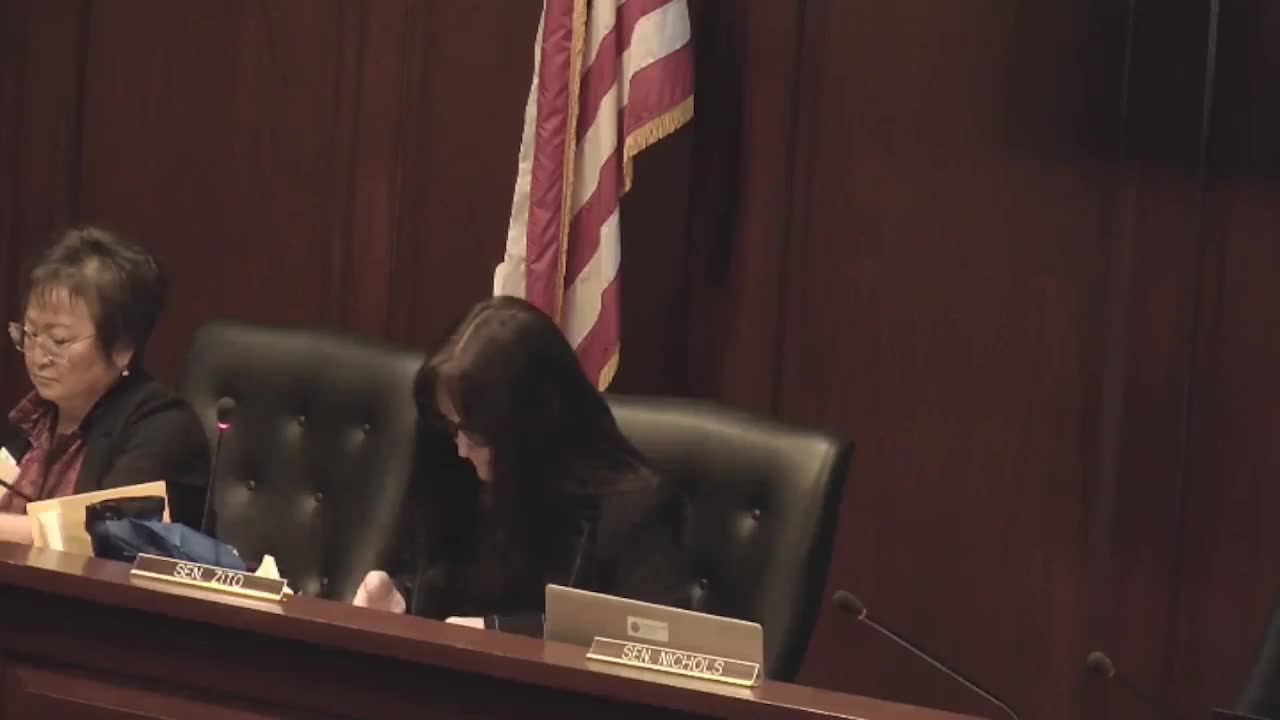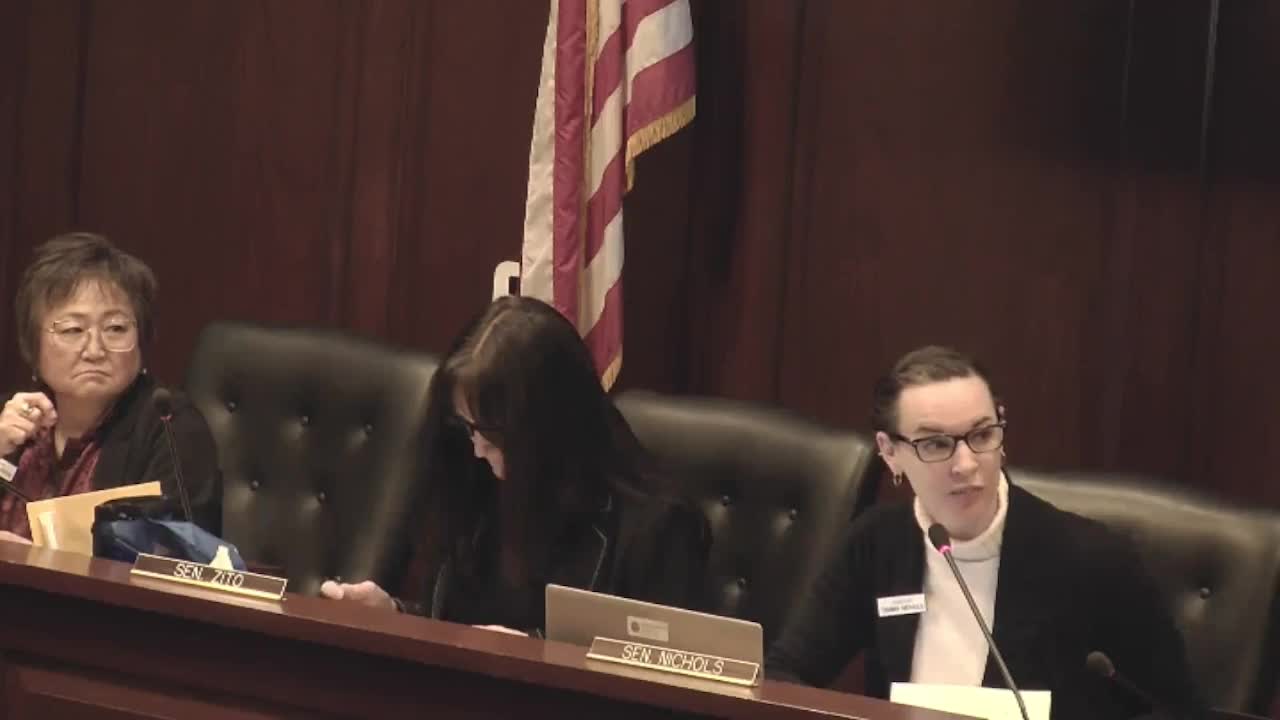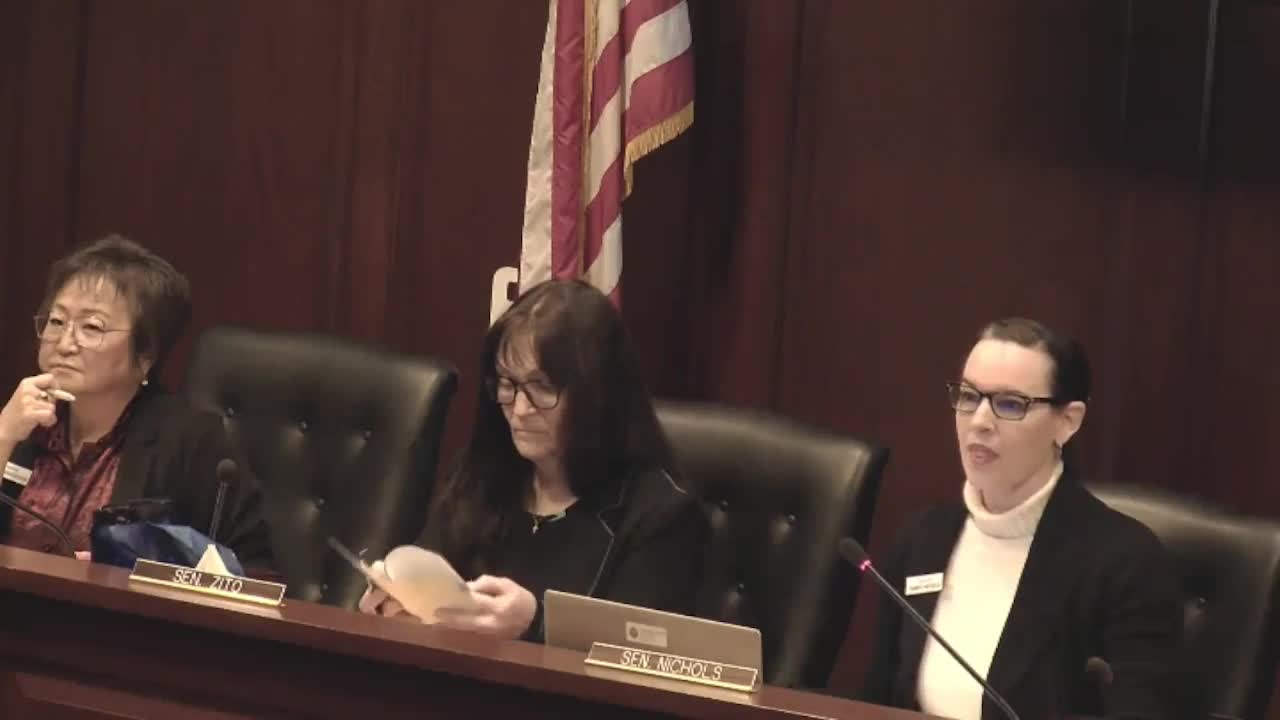Article not found
This article is no longer available. But don't worry—we've gathered other articles that discuss the same topic.

'Free the Chicken' bill advances out of Senate Agriculture Committee; allows homeowners and HOAs to permit hens

Idaho Bean Commission asks panel to print RS31817 to raise checkoff assessment

Senate Agriculture Committee approves printing of fence-clarifying RS32111

